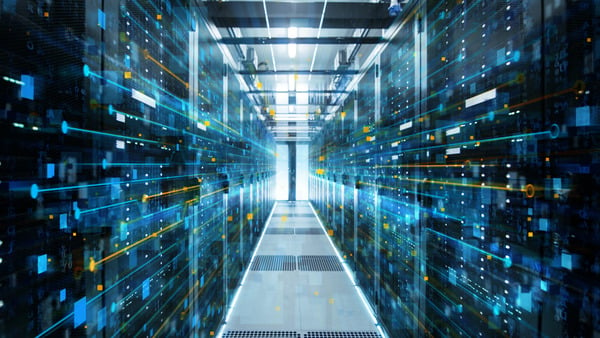Artificial Intelligence (AI) provides increased efficiencies, lower costs, better quality and more. This is the real game changer and will only progress as industries move into a new era of intelligent manufacturing and autonomous equipment.
What is AI?
AI is when a computer or a robot controlled by a computer is programmed to carry out tasks generally associated with human intelligence. Although no programs can match a human's adaptability and intelligence, some AI can perform specific tasks faster and better than professionals.
AI is powered by systems that have human-like cognitive abilities and processes. This includes uncovering meaning, the ability to reason and learning from past experiences. With these abilities, AI can be useful in various applications. For example, manufacturing AI may be used to complete complex tasks through automation, while also discovering new manufacturing processes or workflow patterns.

Types of AI
Many industries are adopting AI to improve efficiency due to its vast capabilities. There are four primary types of AI which include:
#1 – Reactive machines
This type of AI is seen as the most basic level and is used to complete simple tasks. For example, reactive machines can be found in many companies and it requires no learning to take place on the technology end. It only needs input, and it will create output. Reactive AI is when Netflix recommends shows and movies based on your viewing history.
#2 – Limited memory
This is the most used kind of AI and it can learn from past experiences. Limited memory AI can complete more complex tasks, working to combine data with its current knowledge. However, as the name suggests, this technology cannot store knowledge in its long-term memory. Self-driving cars are examples of limited memory AI, where data collected from the recent past allows the car to make instant decisions.
#3 – Theory of mind
Just as humans have feelings, emotions, memories and brain patterns that drive their behaviors, AI can mimic that same mental model. These machines essentially use and learn from the knowledge it gains from other people, which informs behaviors and actions. AI collects that information to perform or react in a new situation. A robot powered by Theory of Mind AI would be more communicative with humans, such as robotic systems that can explain their actions.
#4 – Self aware
This type of AI is aware of others’ emotions and behaviors. Although it has yet to be created successfully, this technology will have the same capabilities as human beings once it is. Unfortunately, there is a lack of proper algorithms and technology to execute the concept successfully. Self-aware AI is when machines will not just be aware of emotions and state of mind of others, but also their own. In one research example, a team in Europe trained a robot to recognize itself in the mirror.
The game changer
AI has the potential to replace humans in certain roles completely and outperform them in daily tasks. This is revolutionary in the manufacturing industry because of the need for increased efficiency and production. Consider the decades old examples of robotic arms performing repetitive welding of components or pick and place in assembly.
Quality control can be taken to the next level as the technology is consistent and can also be used to find faults or errors that human beings may never notice. This will improve the quality while also saving money and time.
With AI, decision-making can be done at a quicker rate. Data can be collected to determine behaviors. This means that companies can better predict the future demands of their customers and make choices accordingly. This will also speed up the exchange between manufacturers and suppliers.
Parts break and machines require maintenance. Sometimes, machinery can be in maintenance for extended periods, causing delays or producing less output. However, with AI, predictive maintenance is a significant benefit. The technology can identify which components need to be replaced or need work done before they begin to fail. This changes things because manufacturers can catch the problems and identify issues before they occur.
The future of manufacturing
Manufacturers want to operate in the most efficient, cost-effective way possible. With AI, that can become a simple reality. Manufacturers can envision a sustainable future, knowing they can obtain every benefit from this new and advanced technology.AI systems can collect, analyze and compute large amounts of data to find issues, predict behaviors and perform various complex and valuable tasks. Additionally, these tools can evolve and adapt quickly to keep up with the ever-changing supply and demand in the manufacturing industry.
Sources:

.png)